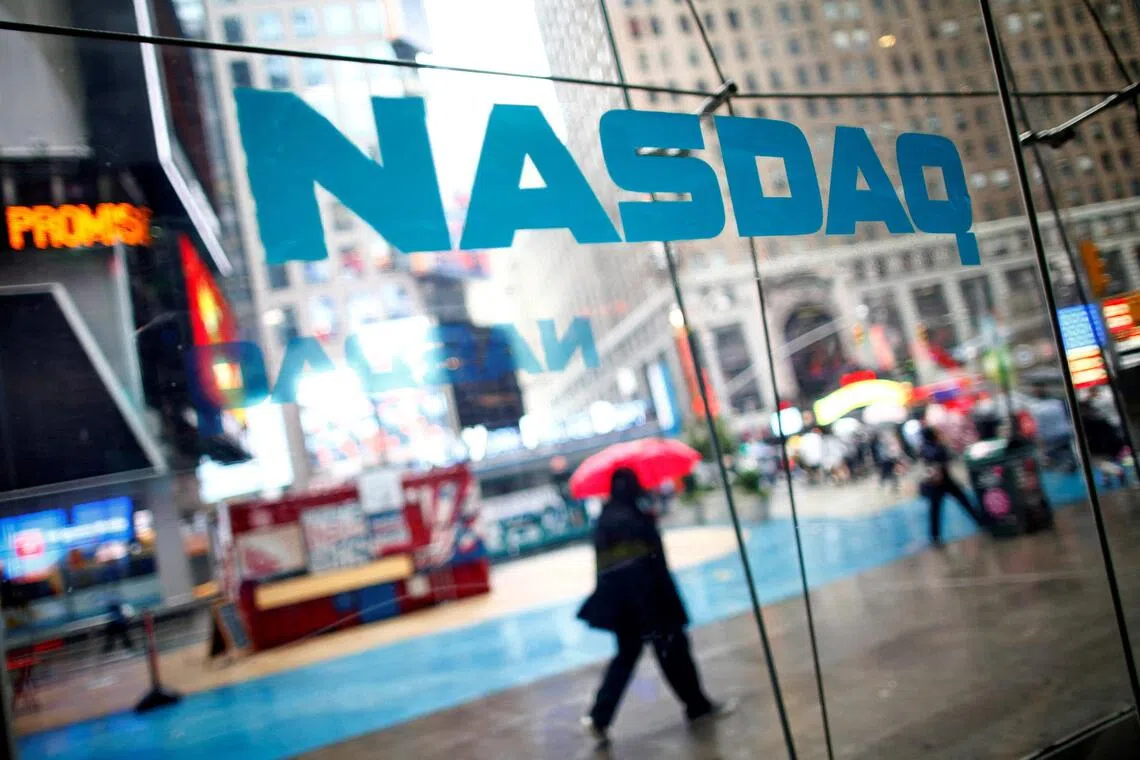SINGAPORE – Investors in Singapore and elsewhere are getting more nervous over whether the tech rally that has carried share prices to record highs is a sign of enduring strength or a bubble about to burst.
More analysts are warning about a bubble originating in big US tech stocks and artificial intelligence (AI) spending that have extended to global markets, including Singapore, which takes its cue from Wall Street.
Recently, JPMorgan’s chief executive officer Jamie Dimon noted there are “a lot of assets out there which look like they’re entering bubble territory”.
One major central bank is so worried that it has issued a warning in early October.
The Bank of England’s financial policy committee warned that “the risk of a sharp market correction has increased”
, and that equity market valuations appear stretched, particularly for technology companies focused on artificial intelligence.
This leaves equity markets particularly exposed should expectations around the impact of AI become less optimistic, it said.
It also flagged concerns that as an open economy with a global financial centre, the risk of spillovers to the UK financial system from such global shocks is “material”.
The International Monetary Fund (IMF) has also weighed in, warning that valuation models show risk asset prices have exceeded fundamentals, raising the risk of sharp corrections.
IMF’s chief economist Pierre-Olivier Gourinchas said while the direct impact on financial stability may be limited, there was a possibility an AI correction could lead to broader repricing of assets that could put stress on non-bank financial institutions.
Continued hype and optimism about the potential for AI technology has led to a rise in valuations in recent months, with companies such as OpenAI now worth US$500 billion (S$649 billion), compared with US$157 billion in October 2024.
Faith in the AI boom was rattled by research from the Massachusetts Institute of Technology, which showed that 95 per cent of firms are getting zero return from their investments in generative AI.
That has fed into concerns that stock market valuations could tumble if investors ended up being disappointed by the progress or adoption of AI technology.
But is a bubble brewing?
According to Bank of America’s latest fund manager survey, more than half of respondents believe AI equities are in a bubble, with nearly a third naming it the biggest risk to markets today.
The eight largest companies in the US are all in the technology sector, and account for close to 40 per cent of the US stock market value. These companies – Nvidia, Microsoft, Apple, Alphabet, Amazon, Meta, Broadcom and Tesla – are now worth more than the stock markets of the UK, China, Japan, Germany and France combined, said Schroders.
This is an unprecedented level of market concentration, double that seen at the height of the dotcom mania.
Valuations support those fears. The S&P 500 is trading around 23 times forward earnings – a territory last seen in 2000, just before the tech crash.
Goldman Sachs disagrees the market is frothy. Analysts at the US investment bank said in a recent report that the AI narrative is just beginning, and what seems like substantial investment today will be outweighed by the benefits AI delivers in the future.
Its baseline estimates suggest that full adoption of AI could increase labour productivity across the entire US economy by a total of 15 per cent. It expects this to occur within the next decade.
Goldman Sachs argued that while elements of froth exist – rising valuations, abundant liquidity, investor exuberance – the core fundamentals remain intact.
It, however, added that the only potential obstacle is investors may have placed heavy bets on certain companies in the early stages of this process. In such competition, early movers are not always the ultimate winners, it said, stressing that the current rally is “greatly dependent” on earnings momentum continuing.
For that reason, diversification remains crucial, Goldman Sachs said.
Schroders said while the US stock market looks expensive, this does not mean that a correction is imminent.
“We could see valuations remain above average levels for some time – or even rise further. This is especially true given a relatively favourable macroeconomic backdrop: across the globe, growth is holding up, recession risks appear low and fiscal stimulus and interest rate cuts are providing broader economic support,” said Schroders’ Ms Grace Lavelle, its investment strategy director, and Mr Ahmet Feridun, its deputy chief investment officer.
They noted that the internet did change the way people lived and worked.
“As is often the case with ultimately disruptive technologies, the pace of investment can at times outpace demand, as adoption takes time. This can result in a significant number of businesses going bust, as well as losses and write-downs for those that survive,” they said.
The two said history suggests it is not uncommon to see signs of speculative excess during a period of accelerated technological transformation.
“The risks of disappointment are certainly rising. It is also very possible, however, that technology sector share prices could have further to run. This doesn’t suggest a retreat from AI-related stocks – but adopting a slightly more cautious stance looks prudent,” they said.
When then US Fed chief Alan Greenspan warned about “irrational exuberance” in the markets in 1996, prices went up further for another four years before the dotcom crash.

